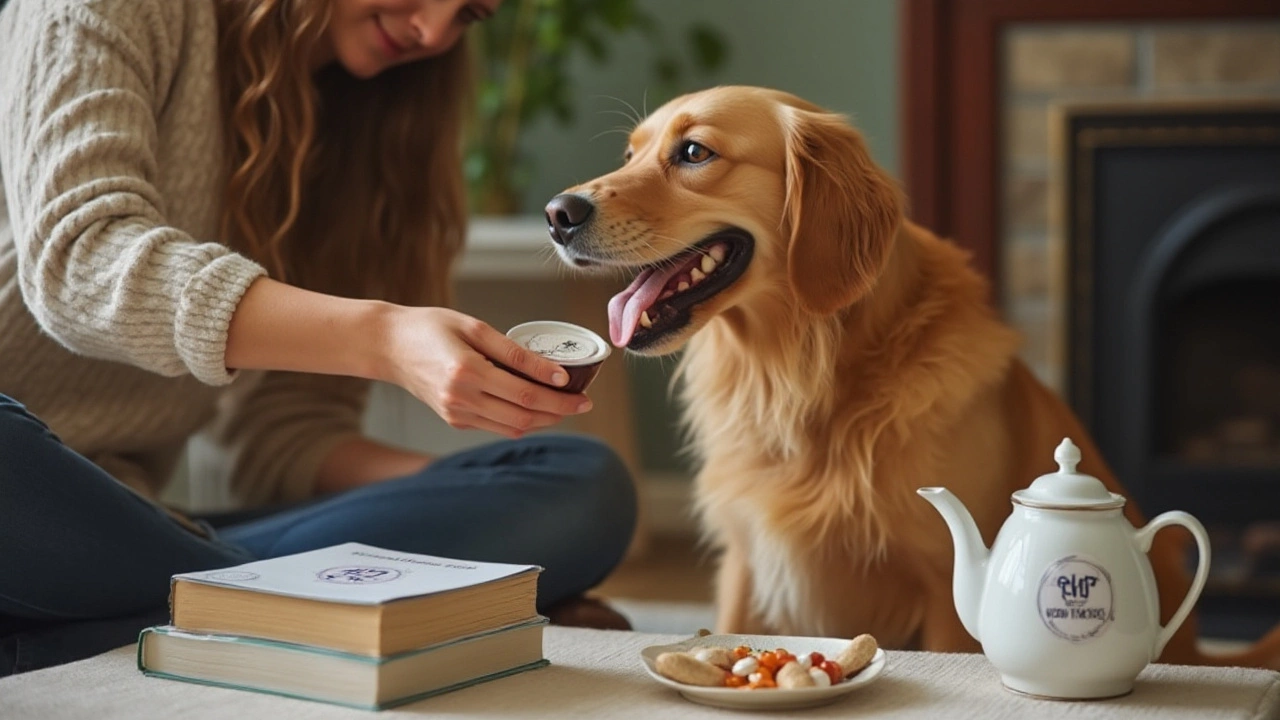Canine Health Tips to Keep Your Dog Happy and Strong
Want a dog that barks less, runs more, and lives longer? The secret is simple: good daily habits, proper food, and the right treats. Below you’ll find easy steps you can start today, no fancy gadgets required.
Everyday habits that protect your pup
First up, exercise. A 30‑minute walk or a game of fetch does more than burn calories – it keeps joints flexible and moods upbeat. If you’re short on time, split the walk into two 15‑minute outings. Your dog will still get the benefits.
Second, regular check‑ups. A quick vet visit once a year catches dental issues, weight changes, and early signs of illness. Keep a small notebook of any new symptoms – a change in appetite, coughing, or limping – and show it to the vet. Early detection saves money and stress.
Third, grooming basics. Brushing weekly removes loose hair, prevents matting, and lets you spot skin problems early. For most breeds, a bath every few months is enough; too‑frequent washing can strip natural oils and cause dry skin.
Lastly, mental stimulation. Puzzle toys, short training sessions, or simple name‑calling games keep brains sharp. A bored dog often develops unwanted habits like excessive barking or chewing.
Choosing safe treats and foods
Treats are great for training, but they can wreck a balanced diet if you’re not careful. Look for treats with a short ingredient list – real meat, vegetables, and a dash of healthy oil. Avoid anything with artificial colors, flavors, or too much sugar.
Our shop, Galloway Gourmet Dog Treats, offers grain‑free bites made from fresh chicken, sweet potato, and flaxseed. Each treat is baked, not fried, so the nutrients stay intact. Small pieces work best for training; a few per day won’t tip the calorie balance.
If you prefer homemade snacks, try a simple recipe: blend boiled chicken, mashed pumpkin, and a spoonful of oat flour, then bake at low heat for 20 minutes. Store in the fridge for a week, or freeze for longer.
When adding new foods, introduce them slowly. Start with a teaspoon mixed into the regular meal and watch for any upset stomach. Some dogs love pineapple in tiny chunks, but too much can cause tummy trouble.
Don’t forget water. Fresh, clean water should be available at all times, especially after play or on hot days. Adding a splash of low‑sodium broth can entice picky drinkers.
By combining regular exercise, routine vet care, simple grooming, mental games, and smart treat choices, you’ll notice fewer health hiccups and more wagging tails. Check out the rest of our canine health posts for deeper dives on topics like bark control, vaccination schedules, and safe foods. Your dog’s best life starts with the basics – and you’re already on the right track!

The Truth About Dog Supplements: Are They Worth Your Investment?
Dog supplements have become increasingly popular among pet owners aiming to bolster their furry friends' health. But are these products truly beneficial, or are they just another trend? This article delves into the world of dog supplements, exploring the various types available, their claimed benefits, and what scientific evidence supports. Learn how to determine whether supplements are a fit for your pet and ways to safely incorporate them into your routine for enhanced canine wellness.
View more